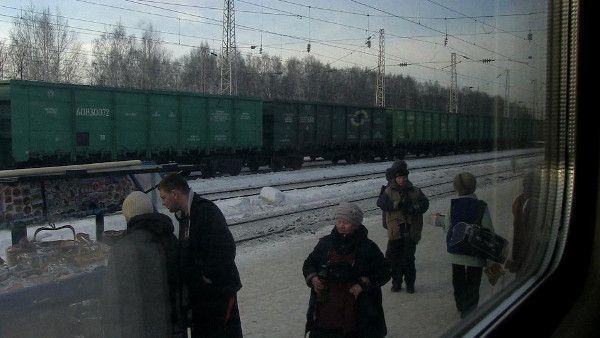Eye For Film >> Movies >> Treblinka (2016) Film Review
Treblinka
Reviewed by: Amber Wilkinson

Chil Rajchman's memoir Treblinka: A Survivor’s Memory, about time spent in the Nazi death camp, is given hauntingly evocative treatment in this experimental essay film by Sérgio Tréfaut.
Set on a moving train, the journey becomes not just a reminder of the horrific route to the camp and death detailed in the narration but also of the sense of being somehow cut-off from 'normal' life. The repetitious clatter of the track also evokes a sense of monotony reflected in Rajchman's words, while the hiss of the air brakes is likely to put you in mind of the gas chambers which awaited so many at the end of the journey. The use of a double image in the reflection of the train window conjures the idea of spectres from the past as well as suggesting that after the war those who had survived often became a ghost of what they had been before as they struggled to cope with the trauma.

Tréfaut doesn't hammer home these points, rather presenting us with a set of images that take shape within the mind of the viewer, leaving us to forge the connections. The content of the memoir is chilling, "The murders are so well mannered," Rajchman tells us. Such observations are made as Tréfaut presents us with images including a naked human body, an illustration of our eternal vulnerability. By keeping his images spare and impressionistic, the horror of the words (spoken by Kiril Kashlikov) hits home hard. The way that even the most unspeakable acts can become as routine as a commute - "We got used to it. We learned the technique." - are reinforced by the measured pacing of the film, which gives us time and space to contemplate the enormity of Rajchman's testimony.
There's an immediacy to the narration and a sorrow stitched into the filmmaking. This is not a film that wants to show you what happened in the death camps, Tréfaut wants you to feel it in your bones, think hard about its implications, and hear its echoes for a long time afterwards.
Reviewed on: 10 Aug 2017














